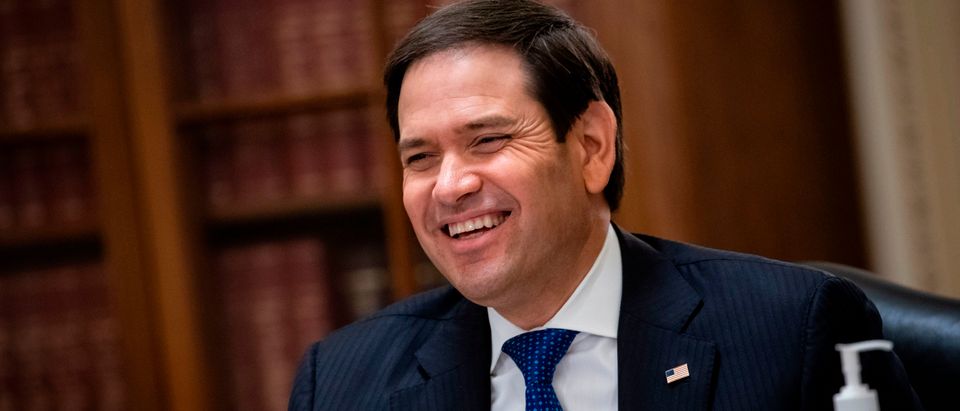Sen. Marco Rubio will introduce a bill Thursday that requires the NCAA to allow college athletes to be paid for their image use.
The bill, according to Rubio’s Twitter, will require “the NCAA create a uniform standard for college athletes being compensated for use of their name, image & likeness.” Athletes are allowed to have professional representation in making name, image and likeness deals but are required to report earnings to the NCAA and their school, per USA Today. (RELATED: Every Player Took A Knee In Premier League’s First Game Since Season Was Postponed)
Today I will file a bill requiring the NCAA create a uniform standard for college athletes being compensated for use of their name,image & likeness. https://t.co/S5mYrASsvS pic.twitter.com/JbL1n2L7Tn
— Marco Rubio (@marcorubio) June 18, 2020
“The only people on campus that are prohibited from benefiting from their name, their image and their likeness are student-athletes,” said Rubio to USA Today, “And that’s just not a sustainable position.” The bill, named the Fairness in Collegiate Athletics Act, would be enforced by the Federal Trade Commission.
The bill, obtained by USA Today, specifically requires the NCAA to maintain the amateur status of athletes, ensure appropriate recruitment of athletes and prevent illegitimate third party activity in recruiting athletes. The bill also provides legal protection for schools and the NCAA if anyone opposes the rule changes.
The bill would also require the NCAA to establish the standard before June 30, 2021, per USA Today. The NCAA plans to loosen its rules on athletes’ name, image and likeness by a vote during its annual convention in January 2021. That change would be effective as early as the start of the 2021-2022 college season.
Several other states, including North Carolina, Mississippi, and Ohio, have created similar bills or have shown interest in creating a similar bill, according to USA Today.
“So, really, the issue before us is no longer whether we want athletes to be compensated for their name, image and likeness or not,” said Rubio, “but whether they’re going to be all treated the same across the country, or whether we’re going to have 50 separate laws and, as a result, state legislative measures are going to become recruiting advantages for some schools over others.”


